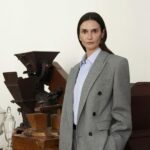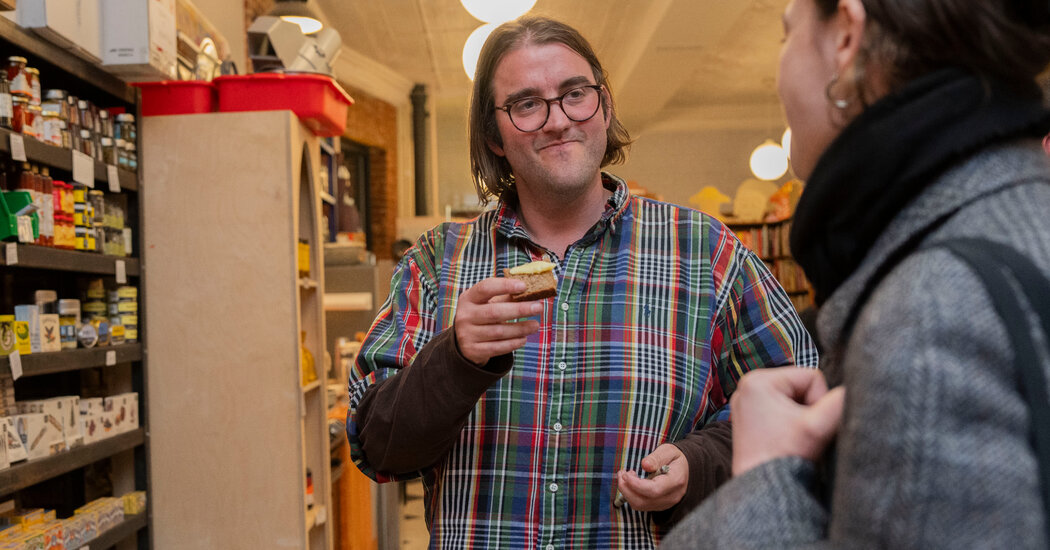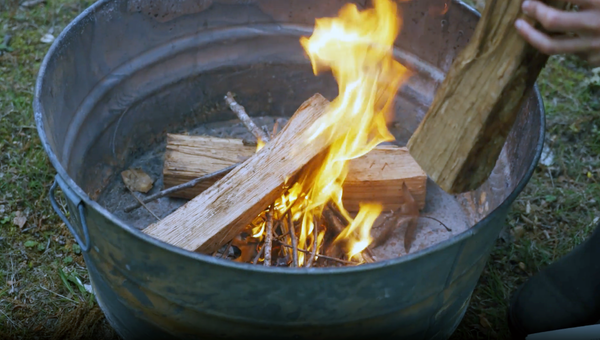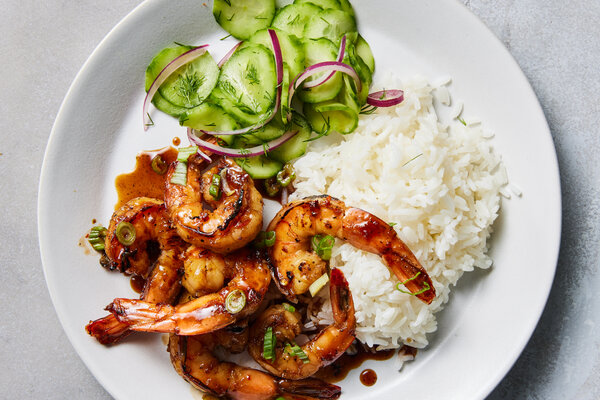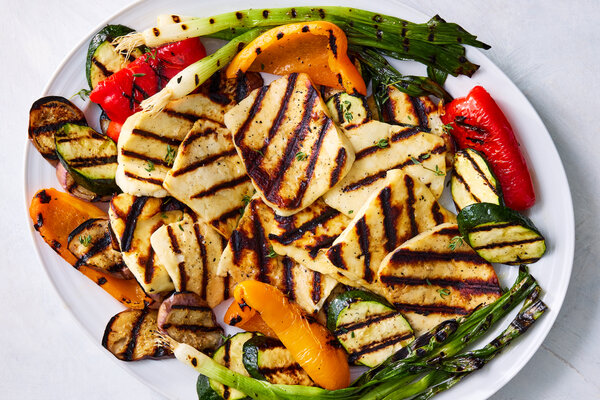“It’s not a cookbook,” the poet Jim Franks said about his new book, “Existential Bread.”
To dispel any confusion, here’s what readers won’t find in its pages: photos of backlit loaves of bread or of disembodied hands measuring, dusting and kneading. There are no recipes. It’s about bread baking, but only insofar as bread baking is a metaphor for life.
“Bread making is instinctual, if you can learn to listen to that wonderful sense within us all that tells us how to make something else feel good,” Mr. Franks writes in the first chapter.
Meditations like these are formatted in stanzas with simple line drawings peppered throughout. Another twist is the book’s publisher: Drag City, an independent music label in Chicago. (In its three decades, the label has done only a couple dozen books.)
“As a format with waning popularity and profitability, it’s a natural fit for us,” wrote Dan Koretzky, one of the label’s founders, in an email.
For many years, Mr. Franks, 37, lived as a wanderer, often hitchhiking from town to town and apprenticing at bakeries along the way. He worked early-morning shifts, night shifts, whatever was needed.
Mr. Franks has an affable boyish demeanor, an effective guise for his sometimes sober message — about food production, capitalism and how to care for one another. “The best thing, even bigger than bread, is that people just learn not to take things so seriously and that they can question things and not just accept the status quo, because little compromises are what’s ruining the world,” he said in an interview a few days before he spoke at a standing-room-only tour stop at Archestratus Books + Foods in Greenpoint, Brooklyn.
Touring is something he has experience with, and some affection for. Mr. Franks, who grew up in Highland Park, a suburb of Chicago, spent his early adulthood working on film sets and music festivals. At 24, after years of roaming and smoking, his lung collapsed, making him re-evaluate his lifestyle.
After discovering a love of bread in 2016, he began staging — a culinary term for interning without pay — at bakeries around the country.
Like a baker’s version of David Carradine in the old TV series “Kung-Fu,” Mr. Franks began a rather nomadic existence, traveling — often hitching rides with strangers — with the sole purpose of educating himself in the art of baking bread.
Bread making has become a religion for some. Peruse book titles on the practice and words like “perfect,” “mastering” and “bible” are ubiquitous.
Mr. Franks knew he wouldn’t approach bread — baking it or writing about it — in the usual way. He wasn’t after perfection but sought to understand the philosophical and ethical conundrums cloaked in the practice of making bread. He said the idea for the book “came out of studying nonviolent communication” and going to therapy.
“The bread stuff I learned from staging and traveling, but most of it was just reading books and talking to people and piecing it together,” Mr. Franks said. “The more I traveled and staged — and this is kind of what I think the book is about — I realized nobody really knew better than anybody else.”
He identifies as an eternal amateur (“because there are no such things as professional bakers,” he argues) and preaches a lax approach. “Mixing doesn’t really matter,” reads one chapter title. “Shaping doesn’t really matter,” reads another. It’s clear, though, that Mr. Franks knows a thing or two about bread.
“The book is unassuming at first but is clearly written by someone who takes bread making very seriously,” said Patrick Shaw-Kitch, the owner of Brooklyn Granary & Mill, which will become the borough’s only mill when it opens this spring.
“I think a reader can get the feeling of making a loaf of bread from Jim’s words,” Mr. Shaw-Kitch continued. “I don’t think it’s a book that can necessarily teach someone who’s never made bread how to, but I think it allows people to go deeper into bread making as a practice.”
Mr. Shaw-Kitch, 41, who has worked in the industry for 20 years at places like BKLYN Larder, Frankies Spuntino and Blue Hill at Stone Barns, interviewed Mr. Franks at Archestratus. He also baked bread for the occasion, including a whole wheat loaf made with rye shio koji porridge.
The two talked for almost an hour before they fielded questions from a lively crowd, who quickly formed an amorphous line to sample the bread. Despite Mr. Franks’s belief that bakers should be free of constraints when it comes to technique, he has strong feelings about ingredients.
The loaves he bakes are always made of whole grain, specifically from local flour. In the section of his book titled “What are you gonna put in your bread,” he describes, in painstaking detail, the properties of certain grains — einkorn, kamut, triticale and farro among them.
“To me, whole grain is whole grain,” he said. “Like, all of the grain is in there. Just because I’m kind of like a hippie, I want it to be the same parts of the same grain all together.”
To simplify this idea: When grain is milled, it may enter whole, but when it comes out the other end, it’s separated, then reconstituted — which, in some bakers’ opinions, degrades the grain. Mr. Franks spoke passionately about starch damage, gluten’s bad rap and how he feels about separating the bran and germ from the grain.
“Basically, we take all the stuff out of it, because that’s the way the system works,” he said. “And we do things the way we do because we do them the way we do — you know, like all of our institutions.”
Mr. Franks said he might like to open a bakery in Chicago. Then again, he wasn’t so sure he wanted to run a business.
“It does go to a spiritual attitude,” said one of his friends, the musician Bill MacKay, who introduced Mr. Franks to the Drag City crew. “What struck me was his devotion to a pure product and his insistence on that vision.”
At the book store event, Mr. Shaw-Kitch asked about the role of vulnerability in writing a book about bread.
“I think vulnerability is important in everything,” Mr. Franks said.



